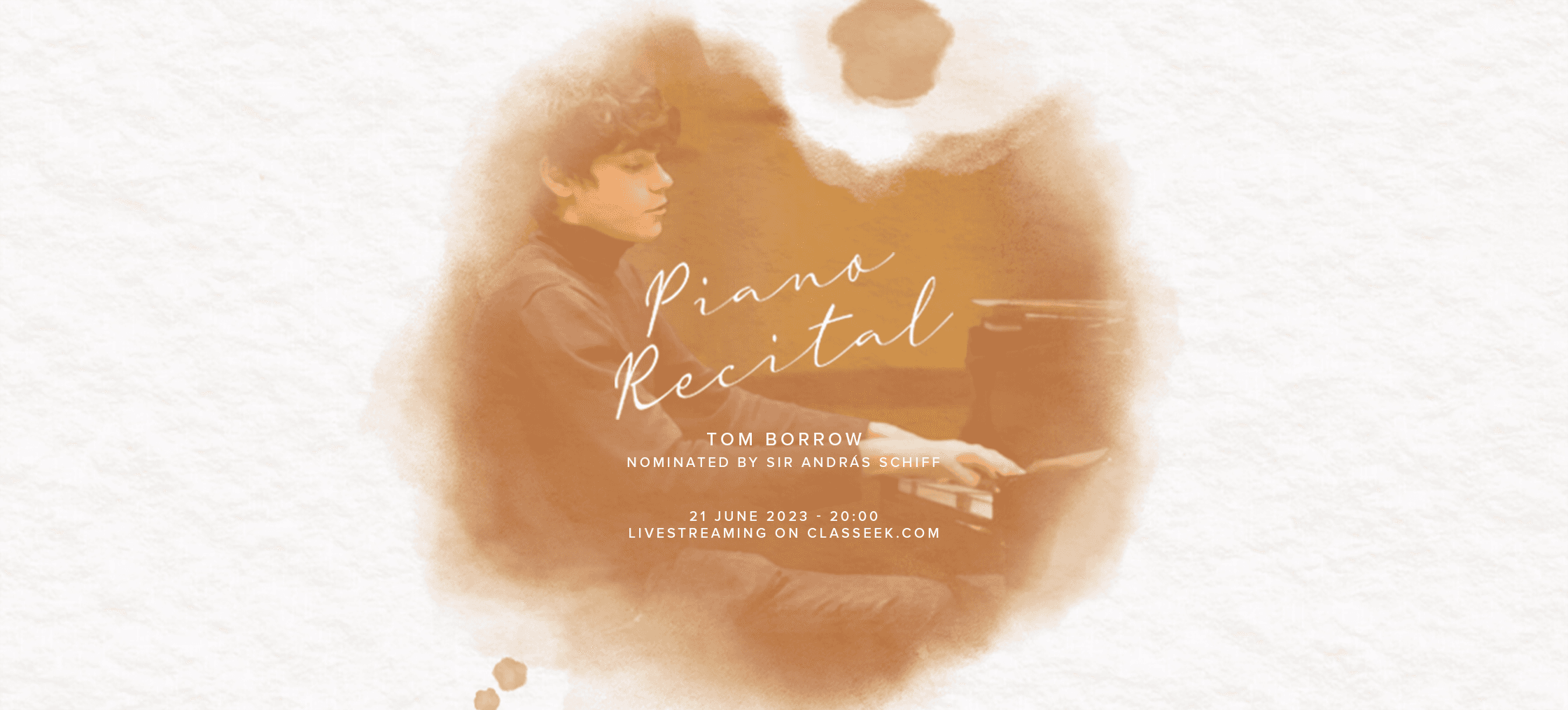
Programme
- C. Franck - Prelude, Chorale and Fugue
- H. Dutilleux - Chorale and variations
- R. Schumann - Fantasy in C major, Op. 17
Programme Info
Nominated by Sir András Schiff, Israeli pianist Tom Borrow joins us for his debut recital on the Classeek Ambassador Programme with a commanding programme of monumental solo piano works.
He opens with a masterful triptych by César Franck, demonstrating the French composer’s unique fusion of traditional forms and innovative, unexpected harmonies. While the form of the Prelude and Fugue had been made famous by JS Bach, it had been neglected for much of the 19th
century. Franck’s attempt to revitalise the form marked a move away from sacred and organ music, which had occupied much of his early career. The Prelude, Chorale and Fugue demand both expressive depth and technical prowess of the player, with contrapuntal lines weaving around each other. Franck takes us on a journey from a majestic, heroic opening via an introspective, reflective chorale into an exhilarating climax of the final fugue.
We then move onto the work of another French composer, working a generation on from Franck. The Chorale et Variations from Dutilleux’s only piano sonata is packed full of references to a range of Soviet and French impressionist composers. Dedicated to and premiered by Dutilleux’s wife Geneviève Joy in 1948, it is one of the composer’s first mature works.
As a final offering, Tom Borrow presents one of Schumann’s finest works for solo piano and a cornerstone work in the greater Romantic repertoire. The composer referred to his Fantasie in C major as ‘perhaps the most impassioned music I have ever written’ in a letter to Clara Wieck, the woman who went on to become his wife. The piece began life as Ruines, a single-movement lament for Clara, with whom Schumann was deeply in love. Clara’s father opposed their marriage and the pair were forced to live separately during a period of great anguish for the composer. The piece was then incorporated into a ‘Grand Sonata’ for one of Schumann’s great composing idols, Beethoven. Sweeping romantic gestures are littered throughout the work, which is similarly grandiose and intimate, with moments of profound lyricism and dramatic contrasts. In its final iteration, Schumann dedicated the piece to Franz Liszt, one of the few pianists of the time who had the technique to be able to tackle the technical challenges of the second movement. Schumann demands sustained passages of simultaneous leaps in both hands, requiring a great deal of physical stamina. It remains one of the most challenging but rewarding pieces for pianists today.
Programme notes by Freya Parr
Subscribe to Our Newsletter
Get the latest updates from all Classeek activities, events, and more - delivered straight to your inbox!